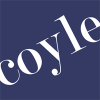Last week, in Coyle’s ‘The Company’ segment, we heard from top CEOs about paying attention to warning signs and confronting reality. Today, we hear from a Bryant University professor who espouses the philosophy that leaders should be anthropologists. That is, leaders should get out of their offices and become active observers of their employees, customers, suppliers, competitors, and strategic partners in each of those group’s natural environments.
The fact of the matter is, the information that leaders received is almost always filtered. Leaders who wait for problems to find them frequently end up waiting until the problem has turned into a fiasco. Therefore, leaders must be active, careful, and systematic problem finders—disavowing themselves of any preconceived notions about “how things are.”
Readers must, of course, take the professor’s words with a grain of salt. Not long ago, “leaders as anthropologists” was called “management by walking around.” And although David Neeleman does in fact play “Snack Boy” in the aisles of Jet Blue airplanes, his purpose is probably more for brand image and publicity than for seeing how his employees actually do their jobs. Smart CEOs like David Neeleman hire trusted advisors to jump into the trenches and report back in an unfiltered manner.
Finally, it is worth mentioning that mystery shopping and market research are very anthropologist-like tools: they are on-going, careful, systematic reports on people and processes. While guest comment cards rarely reveal the truth of how people behave and perceive, and often show only the tail ends of the bell curve (the terribly upset guests and the truly elated guests), mystery shopping objectively provides the full spectrum of the guest experience.
Read the article here.













